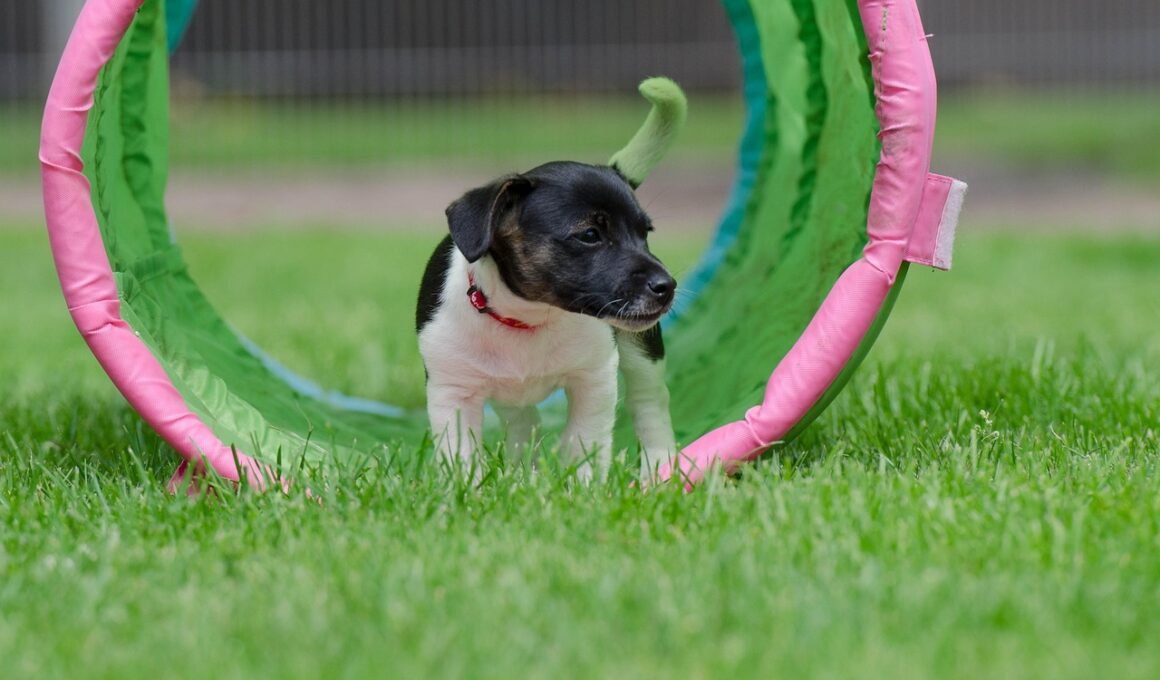The Impact of Puppy Socialization on Adult Dog Behavior
Puppy socialization is crucial in shaping the behavior of dogs as they grow. The experiences they encounter during their early development significantly influence how they interact in later life. A properly socialized puppy will typically display confidence, adaptability, and positive reactions in various environments. Conversely, a lack of exposure during critical socialization windows can lead to fear, anxiety, or aggression. Early interactions with people, other dogs, and diverse settings help puppies learn vital social cues. Ideally, socialization should occur between three to fourteen weeks of age, during which puppies can absorb various stimuli without developing fear. Properly structured puppy classes are an excellent way for pet owners to help with this process, providing a safe space for interaction. Each encounter shapes a dog’s personality and behavioral patterns, which, if positive, will result in a well-rounded adult dog. Research has shown that puppies who undergo sufficient socialization respond better to training and are easier to manage. To ensure happy, healthy, and sociable adult dogs, owners must commit to proper socialization during these formative weeks and beyond.
In addition to basic socialization, understanding the importance of early experiences is essential for puppy behavior. Negative experiences or lack of positive encounters can lead to lifelong behavioral issues, including fearfulness and aggression. For instance, dogs that miss out on critical social interactions may struggle in environments that include other dogs or unfamiliar people. Developing a strong foundation during early months can prevent these complications later on. Additionally, socialization should not only focus on friendly interactions. Puppies must also learn how to deal with various situations, such as being around loud noises, different surfaces, or unfamiliar settings. Positive reinforcement techniques, such as treats and praise, can encourage dogs to associate new experiences with positive outcomes. Furthermore, early socialization opportunities can help mitigate future behavioral problems by exposing puppies to diverse stimuli in a controlled way. It’s crucial for owners to recognize the significance of gradual introduction to challenges their dogs may face in adulthood. Ultimately, socialization is a dynamic process that continues throughout a dog’s life, requiring ongoing commitment and understanding from their humans.
Methods of Effective Puppy Socialization
Implementing effective methods in puppy socialization plays a crucial role in shaping adult dog behavior. Various approaches can yield different results depending on the individual puppy’s personality. Group classes are excellent for allowing social interaction with other dogs in a controlled environment. These classes typically involve guided activities that encourage puppies to play, investigate, and learn proper canine etiquette. Additionally, exposing puppies to positive experiences through everyday outings is essential. Walks in different environments, visits to pet-friendly stores, or parks can allow for important interactions. Introducing your puppy to various people, including adults, children, and individuals with different appearances, is also vital. These experiences contribute to a dog’s ability to remain calm and confident in various situations. Furthermore, it is essential to monitor each encounter and be patient, allowing the puppy to process its experiences without overwhelming them. Engaging in consistent, positive reinforcement techniques while addressing any signs of fear or discomfort is beneficial. Gradually encouraging exposure while ensuring successful experiences can lead to a well-adjusted adult dog, successfully integrating into different environments with confidence and ease.
Training techniques are equally significant in ensuring effective puppy socialization, leading to positive adult behavior. Teaching foundational commands early on, such as sit or stay, creates a basis for communicating with dogs as they grow. Consistency and clarity are key when training puppies, as early successes foster confidence. Incorporating playfulness into training sessions helps puppies associate learning with enjoyable experiences. Engaging with mentally stimulating toys and activities can provide enrichment beyond basic play and help enforce appropriate behaviors. Additionally, using real-world situations as training opportunities can reinforce lessons learned in less structured settings. For instance, rewarding a puppy for behaving calmly when meeting new people will foster a positive association with such encounters. Owners should also remain vigilant and identify triggers that might induce fear or anxiety. It is critical to avoid overwhelming the puppy, as negative experiences can hinder future socialization efforts. Ongoing training throughout the dog’s life helps maintain desirable behaviors while ensuring strong bonds with their owners. Ultimately, a well-socialized puppy, experiencing positive reinforcement, will develop into a confident, well-behaved adult dog.
Long-term Effects of Puppy Socialization
The long-term effects of adequate puppy socialization are profound and multifaceted. As puppies transition into adults, the skills and experiences acquired during their formative weeks become apparent. A well-socialized dog typically exhibits healthy behaviors, such as sociability, attachment to their owner, and adaptability to new environments. Conversely, a dog with limited social experience may develop avoidance behaviors or aggression, leading to challenges in managing them in daily life. These negative behaviors can severely disrupt the bond between pet and owner. Moreover, socialization not only affects behavioral aspects but also influences a dog’s overall health and happiness. Stressful reactions to unfamiliar stimuli can cause physical stress responses, affecting their wellness. One powerful research-backed observation is that socialized dogs tend to be happier and more confident, making them enjoyable companions. They are more likely to engage effectively with other dogs and people. Therefore, dedicating time and effort to a puppy’s early experiences will determine their ability to thrive as adult dogs. This underscores the necessity for owners to recognize the crucial role they play in this development stage.
Providing continuous socialization opportunities during a dog’s life is equally significant. While early experiences lay the foundation, ongoing exposure to new environments and diverse interactions can further reinforce appropriate behaviors. Regular visits to dog parks, participation in social events, or engaging in training classes can help maintain social skills. Developing a routine that includes various stimuli allows for steady behavioral reinforcement, gradually expanding a dog’s comfort zones. Owners should prioritize positive, gradual exposure to prevent future behavioral regressions. Dogs that continue to experience new situations positively are less likely to revert to fear or anxiety in adulthood. Additionally, providing mental stimulation through puzzles or other interactive games alongside physical activity is beneficial. These forms of enrichment enhance a dog’s cognitive skills and reinforce their well-roundedness. By committing to lifelong socialization, owners ensure that their dogs enjoy fulfilling lives, with increased reliability in unfamiliar circumstances. This ongoing process allows for sustained confidence and adaptability, enabling dogs to navigate life’s various challenges and opportunities effectively, further establishing robust owner-dog relationships.
Conclusion
In summary, puppy socialization is a pivotal aspect of a dog’s development that will have lasting effects throughout its life. The various experiences, both positive and negative, encountered during those early weeks will stem into their adult behavior, shaping not only their temperament but also their interactions with other dogs and humans. Owners play an instrumental role in this journey, determining how their dog will respond to the world around them. By prioritizing proper socialization techniques, such as structured classes, varied outings, and consistent training methods, they can foster positive emotional and behavioral growth. Understanding the need for continuous social exposure also reinforces adult behavior, enabling dogs to thrive amidst diverse situations. Ultimately, investing time and awareness in a puppy’s early phases prepares them for a healthy, fulfilling life with their human companions. Hence, the effort placed in socialization undeniably pays dividends. And with each successful encounter, the bond grows stronger, creating a harmonious environment for both dogs and their humans. This knowledge empowers dog owners to cultivate strong, socially adept dogs, ensuring they become well-adjusted adult companions.


